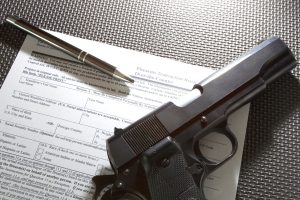A new rule for Florida domestic violence investigations requires police responding to such calls to ask a dozen mandatory questions.
New Mandatory Florida Domestic Violence Questions
If police in Florida (including Broward, Palm Beach, and Miami-Dade Counties) are called to the scene of a suspected domestic violence incident, they are now required to ask the suspected victim ALL of the following questions:
- Has the other person ever used a weapon against you or threatened you with a weapon?
- Has he/she/they ever threatened to kill you or your kids?
- Do you believe he/she/they will try to kill you?
- Has the other person ever choked you or attempted to choke you?
- Does he/she/they have a gun or could they easily get one?
- Is the other person violently or constantly jealous? Or do they control most of your daily activities?
- Did you leave or separate after living together or being married?
- Is the other person unemployed?
- To the best of your knowledge, do you know if the other person has ever tried to kill themselves?
- Do you have a child the other person believes is not his/her/their biological child?
- Have they ever followed you? Spied on you? Left threatening messages for you?
- Is there anything else that worries you about your safety? If yes, what is it that worries you?
This information must be detailed in a written report that clearly indicates the alleged offense is one of domestic violence. That report – which will ultimately become public – is then given to the officer’s supervisor and filed with the agency. If the person answers “yes” to any of the first 4 questions or the last question, they’re referred to a the nearest domestic violence shelter. Same if they answer yes to at least 4 of questions 5-11. Even if they answer “no” to all questions, it’s at the officer’s discretion whether to refer them to a shelter or DV advocate.
But just because officers are required to ask these questions doesn’t mean the person is required to give answers.
And if you are the person suspected of being the aggressor, we understand it can be tempting to jump in and correct or clarify – particularly if the person being questioned is giving police incorrect or misleading information. However, this is a good time to exercise your right to remain silent. Keep in mind that officers aren’t just listening to the answers of the person to whom they’re speaking. They’re watching your reactions too. Anything that could be interpreted as aggressive or intimidating (even just slightly raising your voice or talking over someone) is going to be noted and could be used against you in a court of law. The very best thing to do here is stay silent, calm, and leave the talking to a Fort Lauderdale criminal defense attorney.
New Police Protocol Promoted by Gabby Petito’s Parents
As a Fort Lauderdale domestic violence defense attorney can explain, this new line of mandatory police questioning in Florida domestic violence investigations is the result of Senate Bill 1224, the Gabby Petito Act. The 22-year-old New York woman was reportedly slain by her boyfriend in Wyoming while the two were on a 2021 cross-country trip that originated in Florida. About a month after her death, her boyfriend took responsibility for her death in a note before committing suicide in a Florida swamp. Continue reading
 Fort Lauderdale Criminal Attorney Blog
Fort Lauderdale Criminal Attorney Blog











